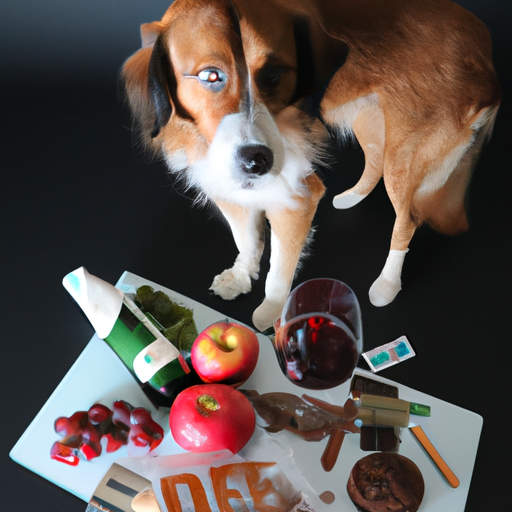As a caregiver to your beloved pet, you are constantly striving to provide the best possible care, right? Part of this care involves knowing what foods are unsafe for your dog. Here is a detailed guide that will help you understand the foods not good for dogs.
1. Chocolate
You’ve likely heard that chocolate is harmful to dogs, but do you know why? Chocolate contains theobromine and caffeine, both of which can overstimulate your dog’s nervous system and cause toxic effects.
- Effects: Vomiting, diarrhea, rapid breathing, increased heart rate, seizures, and in severe cases, death.
- Toxic Quantity: Darker and unsweetened chocolates are more toxic to dogs. Even a small amount can be dangerous.
2. Xylitol
Xylitol is a common sweetener used in many products, including sugar-free gum and candy, baked goods, and toothpaste.
- Effects: Xylitol can cause insulin release, which can lead to liver failure. The increase in insulin leads to hypoglycemia (lowered sugar levels).
- Toxic Quantity: Very small amounts can cause sudden drop in blood sugar, seizures, and liver failure.
3. Grapes and Raisins
Grapes and raisins might seem like a healthy snack for your pet, but they can cause kidney failure in dogs.
- Effects: Vomiting, lethargy, depression, and kidney failure.
- Toxic Quantity: Even a small number of grapes or raisins can make a dog ill.
4. Onions and Garlic
Onions and garlic might add flavor to your food, but they are harmful to your dog. They can damage your dog’s red blood cells and cause anemia.
- Effects: Weakness, vomiting, breathlessness.
- Toxic Quantity: All forms of onions and garlic, including dried/dehydrated, raw and cooked, are harmful.
5. Alcohol
Alcohol has the same effect on a dog’s liver and brain that it has on humans. But it takes far less to harm your furry friend.
- Effects: Vomiting, diarrhea, difficulty breathing, tremors, coma, and in severe cases, death.
- Toxic Quantity: Just a little can cause great harm.
6. Caffeine
Caffeine can be fatal for dogs and, unfortunately, there’s no antidote.
- Effects: Rapid breathing, restlessness, heart palpitations, muscle tremors, fits.
- Toxic Quantity: Moderate to large amounts can be dangerous.
7. Avocado
Avocados contain persin, which can cause diarrhea, vomiting, and heart congestion in dogs.
- Effects: Diarrhea, vomiting, heart congestion.
- Toxic Quantity: The bigger risk is the stone which can cause obstruction if ingested.
8. Macadamia Nuts
Macadamia nuts can cause weakness, overheating, and vomiting in dogs.
- Effects: Weakness, overheating, vomiting, possible tremors, depression
- Toxic Quantity: As few as six raw or roasted macadamia nuts can make a dog ill.
Frequently Asked Questions
Q1: What should I do if my dog consumes these foods?
If you suspect your dog has consumed any of the above foods, contact your vet immediately. They can guide you on the next steps and may ask you to bring your dog in for an examination.
Q2: Are there any safe human foods for dogs?
Yes, many human foods are safe for dogs. These can include fully cooked lean meats, some fruits and vegetables, and certain types of dairy, like plain yogurt or cheese.
Q3: How can I prevent my dog from consuming harmful foods?
Ensure that harmful foods are stored out of your dog’s reach. Also, educate everyone in your household about the dangers of these foods for your pet.
Q4: Are any parts of the avocado safe for dogs?
While the persin in avocados can be harmful to dogs, the biggest risk is the pit. If your dog eats the pit, it could lead to choking or a blocked digestive tract. The flesh of an avocado, while not particularly beneficial to dogs, is generally not harmful in small amounts.
Always remember, while it’s tempting to share your food with your pet, it’s more important to ensure their health and safety. Stick to dog-friendly treats and foods for a happier, healthier companion.



